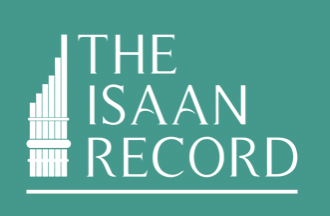
In the Muang Sam Sip District of Ubon Ratchathani, an 11-year old boy was recently the victim of physical harm at the hands of his teacher. In demanding that the child cut his hair, which in the teacher’s estimation violated school policy, the Grade 5 teacher struck the boy with a stick six times along his calves. Reminiscing about the past, the boy’s father said that the worst thing used to happen was that the teacher would cut a small slice of hair from a student and inform them that it had to be cut to the required length. Strikes such as those given to his son, clearly crossed a red line.

The father turned to Facebook, where he posted a photo of his injured son. When the school director learned of the matter later that evening, he soon visited the family at their home, accompanied by the school’s education committee and the abusive teacher. After promising a reprimand for the teacher and hearing his apology, the family did not pursue any additional course of action.
Across the country, students are reporting waves of abuse. Long hair is among the most common catalysts for abuse. From schools in Chaiyaphum and Nakhon Ratchasima, authoritarian teachers have been caught overstepping their authority, slapping students or angrily butchering their hair. In Udon Thani last month, a teacher was caught on video using scissors to cut a young male student’s hair, which went viral on social media.
In the past, it hasn’t been out of the ordinary for teachers to use wooden rulers to hit students or weigh down earrings that don’t fit school protocol to make them uncomfortable or painful to wear.
A more famous nationwide scandal involved 13 staff at the Sarasas Witaed Ratchaphruek Schoolin Nonthaburi, after parents of 30 students complained that their kindergarten-aged children had been abused. Seeking five million baht ($160,200) in compensation for each abused child, parents were outraged when closed-circuit TV footage revealed a female caregiver physically abusing a child while other staff did nothing.
In Thailand, while abuse of children in schools is commonplace, solutions are hard to enforce. Real reform won’t likely come from policy dictated by the Ministry of Education, but rather by taking a long, hard look at behavior embedded deep in Thai society. Thailand is rooted in authoritarian behavior. It’s nearly etched into the culture. As the old Thai idiom goes, “รักวัวให้ผูก รักลูกให้ตี,” meaning, “If you love your cow, tie it up. If you love your children, spank them.”
Of course, when idioms like these became popular, there wasn’t widespread knowledge of human rights or the psychological impacts of such punishments on the well-being of young children. Researchers from the University of Michigan and the University of Texas recently looked at studies from more than 160,000 American children, of whom showed increased signs of aggression, cognitive difficulties, and mental health challenges.
Punishment has been discussed repeatedly in the past, but teachers do not often know the limits of their actions. The standard military-style haircuts–crew cuts for boys and a short bob for girls–date back to the era of Thanom Kittikachorn in 1972. Like the flawed, outdated rote education system, Thailand’s rigid rules do not transcend eras. In January 2005, penalties were more clearly defined under Section 6 and Section 65 of the Child Protection Act, which define the limitations of punishments under four options: 1) lecturing; 2) threaten suspension; 3) issuance of demerits; and 4) instruct the student to join a group designed to adjust their behavior.
Thailand should also examine the top-down hierarchies that dominate society. School principals and teachers hold higher status in society, as do other professions that come with a public pension. Many Thai people see teaching as a noble and secure profession. Further, the practice of deferring naturally to those of higher status, particularly in schools, contributes to the problem. The Thai practice of krengjai, a norm where people engage in behavior that encourages a kind of humility, respect, and consideration of others is problematic, as in schools it means deferring or accepting power differences almost by default.
Among a growing segment of the population that has been exposed to best practices where corporal punishment is not a part of school culture and where an increasing number of Thais are sending their children abroad for a more international experience, the thought of tolerating abuse is unthinkable. But in many parts of Thailand, it goes with the territory. Many parents are overly reliant on teachers and schools in the rearing of their children, as many feel that the higher status, better educated teachers and administrative staff have the education and training that they lack.
While the literacy rate in Thailand exceeds 93 percent, according to UNESCO, some 3.5 million Thais 15 years or older are functionally illiterate. Disparities in the implementation of the right to education still persist in Thailand as well as globally. It is this supposed educational deficit that spotlights another problem—the lack of human rights-based education in Thai society. While it is rare in public schools for children to be taught a curriculum that includes a human-rights based approach, it is a near impossibility that that same foundation is passed on to Thai parents.
In 2019, the crippled National Human Rights Commission of Thailand (NHRCT) asked the Cabinet to introduce basic human rights instruction into schools nationwide, producing a handbook for teachers to educate students about the subject for children in preschool through the secondary school levels. Commissioner Prakairatana Thontiravong, who urged that integrating human rights education in schools would need involvement from the state as well as the private sector, did not mention the value that educating parents would have in the absorption of human rights norms and democratic principles would have on Thai society.
Rigid traditions, including the outdated method of instruction, are hurting national progress. Aside from the norms that include the royal anthems played during assemblies as well as unquestioned loyalty and adherence to authority, the emphasis on compliance and allegiance is hurting competitiveness. Thailand lags far behind Singapore and Malaysia in a number of key indicators, according to the OECD.
To reduce instances of abuse as well as boost overall scores in critical subject areas, Thailand must address the cultural and social norms that legitimize and normalize abuse in schools. Other countries have taken action. While 41 percent of Japanese parents accept spanking as an acceptable form of punishment in schools, Japan amended its 2000 Child Abuse Prevention Law and 1947 Child Welfare Act to ban all forms of corporal punishment of children. It is no longer allowed in Europe. Conversations are being had in Malaysia.
True reform in Thailand involves taking a long, hard look in the mirror.






